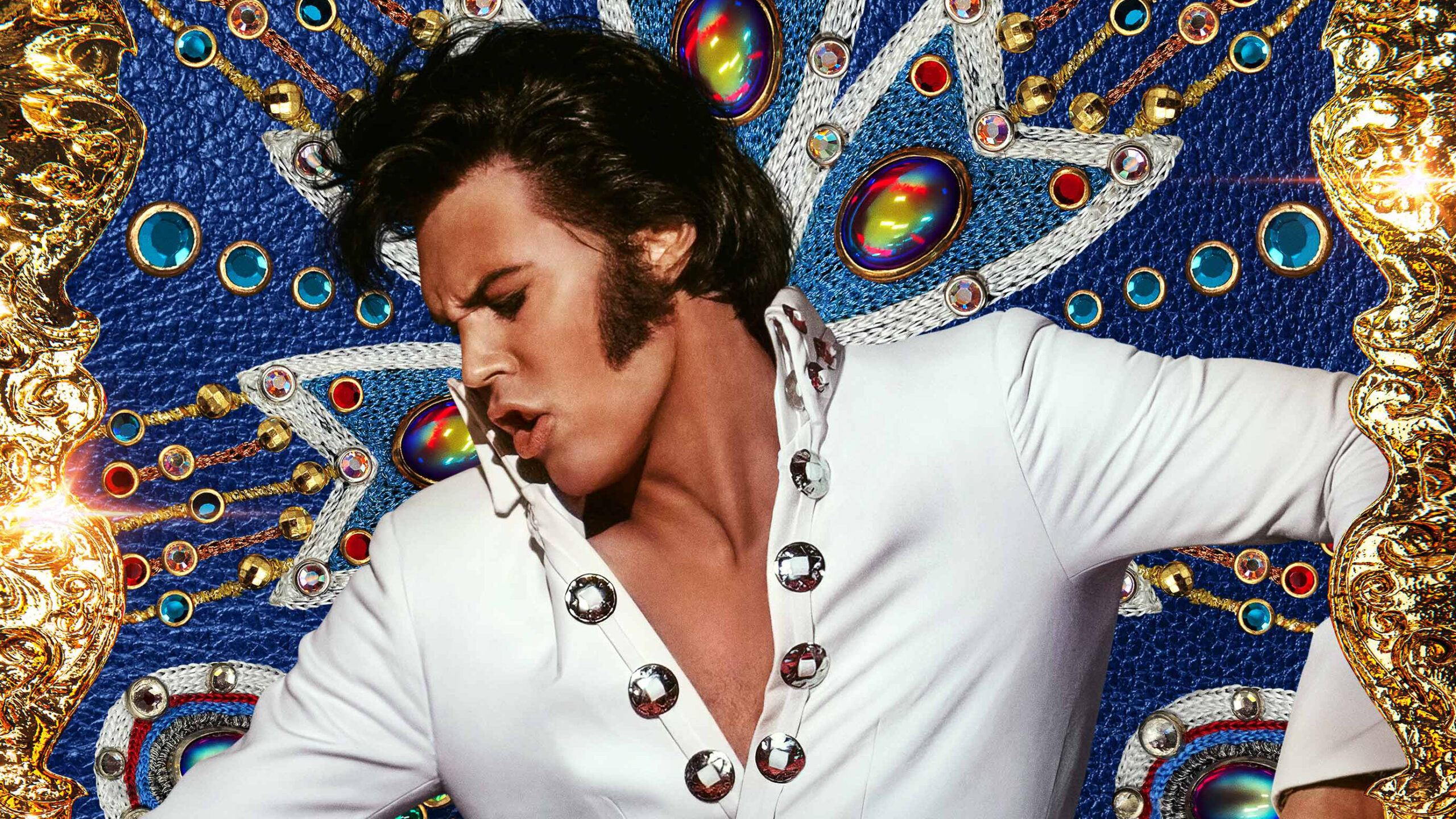Elvis Presley was a man with “it.” With smooth charisma, Southern charm, good looks, and an incredible voice, he had the uncanny ability to grab attention and hold it almost effortlessly. He died a year before my parents were married, but my father played and continues to play his music nearly every car ride. The iconic guitar rhythms and lyrics of “In the Ghetto” or “Suspicious Minds” are etched into my brain as some of the best music ever made. When I first watched the trailer for the new Elvis film, I had mixed emotions of excitement and trepidation. Elvis was one of those talents that contained so much “it” that trying to recreate the man is almost impossible—which is why we often see goofy caricatures of him. I didn’t want to sit down to a three-hour film that missed a very difficult target. However, to my great surprise, the film provides that rare ability to give proper credence to the man and his genius.
One of the film’s highlights is Austin Butler’s portrayal of Elvis. Not only does he pull off the look, but he somehow was able to portray the depth and mystery of a superstar. In an interview with Jimmy Fallon, Butler shared that, due to COVID, he ended up with over eighteen months to work on the craft of Elvis’ iconic voice and dance moves. You can still hear a tinge of the draw in Butler’s voice, which I imagine is very difficult to eliminate after years of practice. The two scenes that convinced me Butler was the right man for the job were the ’68 Comeback Special singing “If I Can Dream” and the concert singing “Trouble.” These scenes display the rebellion and individuality Elvis is so known for, and Butler hit the mark.
One of the beautiful things about America is that something like music—much like sports—is how we can rise above our seeming differences and focus on making something beautiful.
Alongside Butler, the film stars Tom Hanks as Colonel Tom Parker, Elvis’ manager. While I had known of Parker’s devious money deals, such as the fact that he received 50% of all of Elvis’ income, I had not known about the constant mental manipulation. The film shows a man who has the ability to set opportunities for Elvis to make serious money, but that he viewed Elvis as nothing more than a cash cow for himself. Even when Elvis becomes aware of the manipulation and bad deals, somehow Parker creeps his way back into his mind and heart. Displays of false love through embraces, words, some sense that Parker was protecting him, and that Parker “made” Elvis were devilishly disturbing. John Paul II once wrote that the opposite of love is not hate—the opposite of love is use. Watching Elvis in the grips of that kind of manipulation, you cannot help but have compassion for the man.
A thought-provoking aspect of the film was Elvis’ potential arrest for indecency. His hip and leg gyrations were a scandal to many at the time. However, to a modern viewer, his style is almost tame. I’d take early Elvis’ moves over those of many modern celebrities any day. Elvis’ rebelliousness was nothing in comparison to the downright repulsiveness modern viewers are forced to take in almost every day.

Of course, any time Elvis’ name is mentioned, questions of race relations are always soon to follow. I thought the film offered a very balanced perspective of his relationship with African-American culture. It shows the evils of segregation and racism in all of its ugliness. It also shows that he was good friends with B.B. King and often preferred to hang out on Beale Street with the African-American community. Numerous African-American celebrities have spoken about how kind and generous he was with their community. Elvis was a product of the American South and black culture within blues and rock and roll. He grew up around mostly African-American families. While some might call what he did “cultural appropriation,” it’s not as if he pretended his way to becoming a Southern blues star. This was the community and culture he was raised in, the culture he loved. It seems to me that one of the beautiful things about America is that something like music—much like sports—is one way we can rise above our seeming differences and focus on making something beautiful. Perhaps Elvis didn’t do everything perfectly in this regard, but I think saying that a person cannot enjoy and produce something beautiful because of the color of his skin is simply wrong.
An artist dissipates into the long-standing tradition from which he emerges, not negating his unique talent but making his gift an offering to humanity rather than the self.
Elvis’ life provides both inspiration and a warning. Elvis’ talent transcends all of the minutiae surrounding his life. He was one of the once-in-a-generation voices that have unequivocally influenced music and culture. However, he also represents the dangers of celebrity and a life lived on one’s own terms. T.S. Eliot writes in his essay “Tradition and the Individual Talent” that “the progress of an artist is a continual self-sacrifice, a continual extinction of personality.” An artist dissipates into the long-standing tradition from which he emerges, not negating his unique talent but making his gift an offering to humanity rather than the self. I’m just not sure modern celebrity culture can allow an artist to extinguish their personality into the tradition. If T.S. Eliot is right, Elvis’ eventual depression was a product of seeking meaning in individualistic celebrity culture and lavish displays of love from his fans rather than seeing his incredible talent as a sacrifice to the higher good of tradition and beauty.
Elvis’ life and talent is now ingrained in American culture and will continue to influence it for many more generations. It is still hard to believe that he accomplished so much before dying at the young age of forty-two. The one thing I would have liked to see in this film is Elvis’ love of Gospel music. His song “Crying in the Chapel” is one of his best. Regardless of whether or not you like Elvis or his music, this film is a fun ride.
